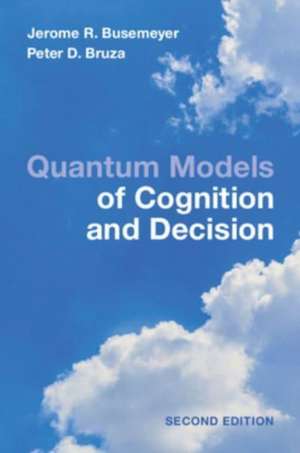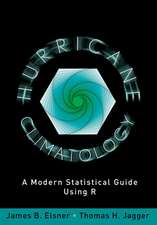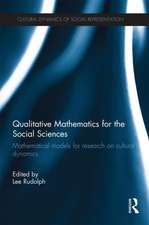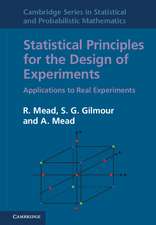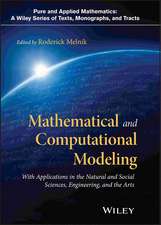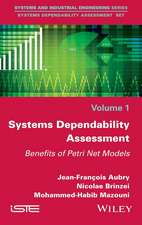Quantum Models of Cognition and Decision
Autor Jerome R. Busemeyer, Peter D. Bruzaen Limba Engleză Paperback – 21 oct 2024
| Toate formatele și edițiile | Preț | Express |
|---|---|---|
| Paperback (2) | 313.01 lei 6-8 săpt. | |
| Cambridge University Press – 18 iun 2014 | 411.63 lei 3-5 săpt. | |
| Cambridge University Press – 21 oct 2024 | 313.01 lei 6-8 săpt. | |
| Hardback (2) | 707.08 lei 6-8 săpt. | |
| Cambridge University Press – 25 iul 2012 | 800.22 lei 3-5 săpt. | |
| Cambridge University Press – 21 oct 2024 | 707.08 lei 6-8 săpt. |
Preț: 313.01 lei
Nou
Puncte Express: 470
Preț estimativ în valută:
59.90€ • 61.88$ • 49.85£
59.90€ • 61.88$ • 49.85£
Carte tipărită la comandă
Livrare economică 25 martie-08 aprilie
Preluare comenzi: 021 569.72.76
Specificații
ISBN-13: 9781009205313
ISBN-10: 1009205315
Pagini: 456
Dimensiuni: 152 x 229 x 24 mm
Greutate: 0.6 kg
Ediția:Revizuită
Editura: Cambridge University Press
ISBN-10: 1009205315
Pagini: 456
Dimensiuni: 152 x 229 x 24 mm
Greutate: 0.6 kg
Ediția:Revizuită
Editura: Cambridge University Press
Cuprins
1. Why use quantum theory for cognition and decision? Some compelling reasons; 2. What is quantum theory? An elementary introduction; 3. What can quantum theory predict? Predicting question order effects on attitudes; 4. How to apply quantum theory? Accounting for human probability judgment errors; 5. Quantum inspired models of concept combination; 6. An application of quantum theory to conjoint memory recognition; 7. Quantum-like models of human semantic space; 8. What about quantum dynamics? More advanced principles; 9. What is the quantum advantage? Applications to decision making; 10. How to model human information processing using quantum information theory; 11. Can quantum systems learn? Quantum updating; 12. What are the future prospects for quantum cognition and decision?
Recenzii
'Mathematical models of cognition so often seem like mere formal exercises. Quantum theory is a rare exception. Without sacrificing formal rigor, it captures deep insights about the workings of the mind with elegant simplicity. This book promises to revolutionize the way we think about thinking.' Steven Sloman, Brown University, Rhode Island
'This book is about why and how formal structures of quantum theory are essential for psychology - a breakthrough resolving long-standing problems and suggesting novel routes for future research, convincingly presented by two main experts in the field.' Harald Atmanspacher, Institut fuer Grenzgebiete der Psychologie und Psychohygiene e.V.
'This is the first book putting forward the main scientific results of an intriguing and promising new research domain called 'quantum cognition'. In this emergent field, the mathematical structure of quantum theory is employed to model essential aspects of human cognition impossible to be modelled properly within classical approaches. The authors are both engaged intensively in quantum cognition and [have written] a high-quality and well-understandable treatise showing how this new approach carries the potential of a real breakthrough, with deep implications for how cognition will be looked upon in the decades to come. The approach may also signify a thorough new opening to the old problem of artificial intelligence and the structuring of semantics.' Diederik Aerts, Brussels Free University
'This book is about why and how formal structures of quantum theory are essential for psychology - a breakthrough resolving long-standing problems and suggesting novel routes for future research, convincingly presented by two main experts in the field.' Harald Atmanspacher, Institut fuer Grenzgebiete der Psychologie und Psychohygiene e.V.
'This is the first book putting forward the main scientific results of an intriguing and promising new research domain called 'quantum cognition'. In this emergent field, the mathematical structure of quantum theory is employed to model essential aspects of human cognition impossible to be modelled properly within classical approaches. The authors are both engaged intensively in quantum cognition and [have written] a high-quality and well-understandable treatise showing how this new approach carries the potential of a real breakthrough, with deep implications for how cognition will be looked upon in the decades to come. The approach may also signify a thorough new opening to the old problem of artificial intelligence and the structuring of semantics.' Diederik Aerts, Brussels Free University
